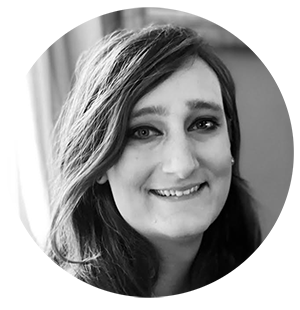By Kevin Juhasz for Hack Reactor
For all of the progress the industry makes, there’s one area of advancement the tech world consistently struggles with – themselves. There is no shortage of news stories and studies that show a troubling level of bias in the tech world—racism, sexism, and discrimination against the LGBTQ+ community.
A study published in a January 2021 issue of Science Advances looks at the inequalities LGBTQ+ professionals face in STEM careers. The study’s results showed that members of the LGBTQ+ community faced numerous challenges that non-LGBTQ employees did not, even in cases where all other factors were equal, including:
- Fewer opportunities and resources, including fewer avenues for skill development and protections for whistleblowers.
- Greater likelihood that their work and expertise will be considered less important. More than 20% of respondents had experienced some form of devaluation in their careers.
- Greater harassment and social exclusion are higher among LGBTQ+ professionals. There is a 30% higher chance of harassment for these workers, and almost 33% of LGBTQ+ professionals reported social exclusion compared to 22.7% of workers outside the group.
- Because of the discrimination they face in STEM fields, LGBTQ+ professionals are more likely to face higher rates of health and wellness issues, and they are more likely to look for new employment.
The software engineering industry is no exception to these problems. March 31 is International Transgender Day of Visibility, and it would be a good opportunity for the community and industry to explore the discrimination and subsequent issues transgender software engineers face in their careers.
Robbi Katherine RKA (RKA), CEO and Founder of Euphoria, understands the issues that transgender individuals face. Her company creates mobile apps designed to assist individuals with their gender transition. RKA has insight into the issues they face, as well as industry discrimination, after transitioning herself.
“I’ve always been something of an entrepreneur,” RKA explained. “I started my transition seven years ago, so I’ve definitely got some distance on it. Prior to that, I was marketing director at an ad agency, doing some e work on the web. Throughout college, I was perpetually working on different software and hardware ventures. Not the most formal training to get where I’m at, but I’ve always been bit by the bug of technology.”
RKA said the discrimination she’s experienced started at her transition and has persisted to this day.

“The most notable difference is I just don’t get taken as seriously as I used to,” she explained. “When I was 19, I was minting patents, I was raising money, the sky was the limit. Post-transition, it’s been a much more difficult place to be taken seriously.”
RKA stated that it’s easy to put two-and-two together in a conversation and know that she’s different, which is when the discrimination that’s rampant in the industry begins.
“Employers and the industry can use their various foils – whether it’s credentials, whether it’s experience, any sort of metric they can use—as a gatekeeping mechanism,” she explained. “A lot of the traditional conduits for success and education, and just being in this industry, are weaponized back towards people like me as soon as they pick up on the differences.”
Conversations over email keep her on equal footing, but when the communication moves toward phone, Zoom, or in-person, there’s a significant increase in the odds of them viewing RKA differently and withholding resources that would be easily distributed to others.
As RKA progresses in her transition, it’s a different but common type of discrimination, which has become a mix of bad and good.
“The converse high point [of this] is that as I’m getting further and further in my transition, I’m experiencing the cut of misogyny toward me,” she said. “It’s oddly affirming. The thing people want to critique about me more now is that I’m a woman in software engineering.”
Even with that, she said it’s difficult to have a one-on-one conversation with someone and have them view her as an equal. Her approach to this, however, is to use her differences as an advantage.
“I’ve just leaned into the fact that I’m indelible. I meet people, and I am forever in their memory,” RKA said, explaining that she avoids viewing the situation as bad. “Being different in software and tech is the gold standard In my book.”
The software engineering industry is still one of the better areas for transgender professionals, RKA thinks, because it offers a greater opportunity for individuals to self-educate and the work is sometimes viewed on quality and not the individual.
“There’s a bit more mobility in software because nobody cares what you look like behind a keyboard,” she explained. “The pandemic shook that up now that Zoom has become a staple and a verb in our lives; but I think at the end of it, it’s nice because I don’t always have to be out there. People look at my code in determining if I’m good enough or not. It’s become more of an equalizer.”
There are several ways, however, that both the software engineering industry and transgender professionals can address the issues and assist with the progress toward equality and acceptance. RKA takes the differences she applies as an advantage and does the same with transgender software engineers in general.
“The way I pitch the trans community is to say that this is a group of innovators from birth because we’re innovating on ourselves, on our bodies, and our souls,” she explained. “Imagine what we can do when we apply that same tenacity—that same life or death fight—to the technologies that we build.”
As far as the software industry as a whole, RKA encourages companies to hire more trans people and create more welcoming spaces that will ensure the longevity and success of trans software engineers.
“It’s easy to hire someone like me,” she said, “but it’s harder to retain someone like me if the infrastructure and the culture aren’t set up to be a welcoming one where I can truly be a peer and not a diversity point.”
For anyone interested in joining the Hack Reactor program, we offer the Telegraph Track for students who come from underrepresented backgrounds in tech, including women, nonbinary people, people of color, LGBTQIA+, disabled people/people with disabilities, immigrants, first-generation students, veterans, and students over age 40. The Telegraph Track provides a free extra layer of resources for anyone admitted to our Software Engineeering Immersive, including networking events, career panels, 1:1 pairing with mentors working in the industry, community, and office hours for students from underrepresented backgrounds in tech.
For anyone interested in mentoring students who come from underrepresented backgrounds, please fill out our mentor form to become a mentor for our Telegraph Track!
